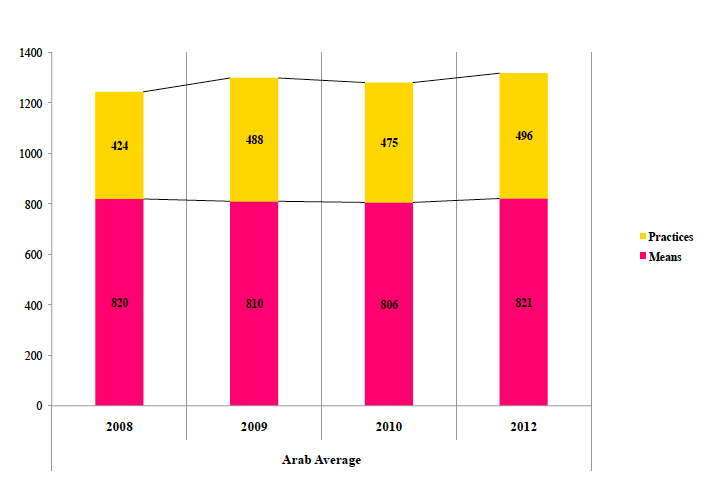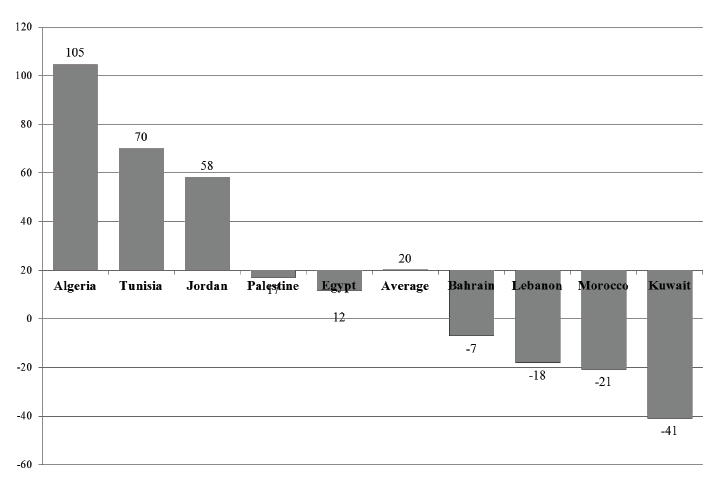Post developed by Katie Brown in coordination with Khalil Shikaki.
Can measurement promote democratization in the Arab world? Khalil Shikaki, visiting scholar at the Center for Political Studies (CPS), believes the answer is “yes.” In 2006, he set out to create an instrument to measure both the direction and sustainability of the transitional process. The resulting Arab Democracy Index is a joint project between the Palestinian Center for Policy and Survey Research (PCPSR), the Arab Reform Initiative, and the Arab Barometer.
The Arab Democracy Index is unique in that it comes from within the Arab world to reflect local experiences. It also pulls from three main sources: data on government actions, reviews of legal and constitutional text, and public opinion data. Local teams in nine to twelve countries collect this data, tailoring the standardized process based on their local expertise. Together, these sources offer insight into 40 indicators of democracy.
The Arab Democracy Index indicators break down into two types. First, there are Means, e.g., legislation, which speak to democracy de jure. Second, there are Practices, e.g., elections, which speak to democracy de facto. Data in each category tally to a total. Scores below 400 constitute an undemocratic state, 400 to 699 indicate early signs of transition, 700 to 1,000 highlight visible progress toward democracy, and scores above 1,000 pertain to already democratic nations. The graph below displays the results for all Arab countries. Overall, Means remain relatively constant while Practices show signs of improvement.
The data can also be broken down by country, as in the graph below. As we can see, some nations are driving this positive trend while others are moving away from democracy during this period.
The results led to reports, issued in 2008, 2009, and 2010, that not only document opinion but offer policy recommendations for policy change tailored to each country. Shikaki notes that while political and civil rights have improved, more must be done. Specifically, he recommends a focus on reforming education, social justice, and socio-economic reforms. The Arab Democracy Index also underscores an important larger point: external pressure from the U.S. Department of State can help change democracy in theory, but change in practice must come from within.



